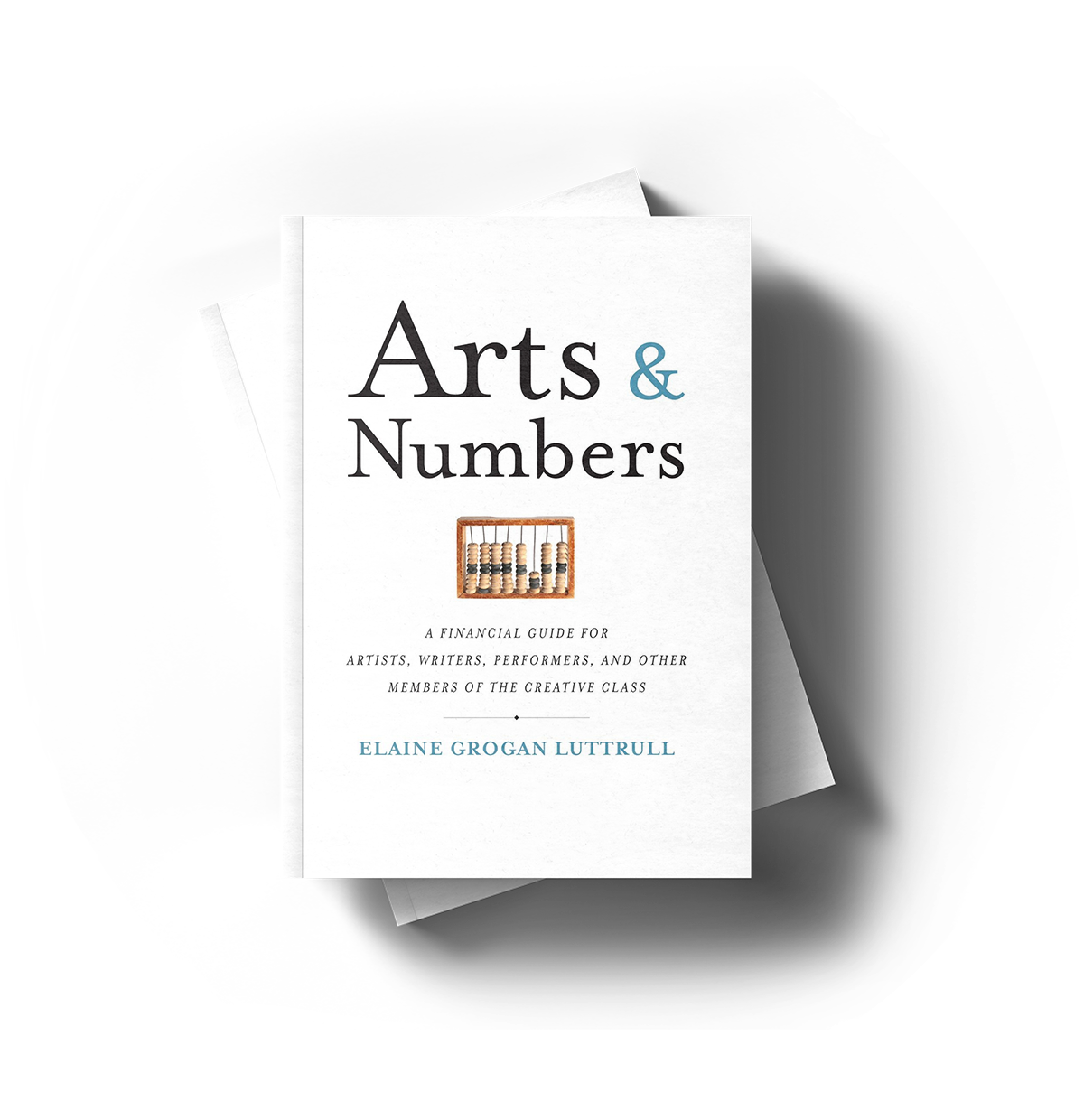April 1, 2013 • Musings
 Did anyone see the business section of last Sunday’s Times? There was a great article by Steven Greenhouse about the Freelancers Union and its growth, support, and advocacy for creative entrepreneurs.
Did anyone see the business section of last Sunday’s Times? There was a great article by Steven Greenhouse about the Freelancers Union and its growth, support, and advocacy for creative entrepreneurs.
The article also noted that the “country is awash in freelancers and other independent workers” and it cited studies that estimate the cohort to number 20 million or more. (In my work, Arts & Numbers, I quantify and target a subset of this group, artists, which although broadly defined, numbered only 2.1 million in the last census. In my life as a professional, an entrepreneur, and the founder of Minerva Financial Arts, I’m one of the 20 million, even though my role as a creative entrepreneur is based on tax, budgeting, and accounting, tasks that fall far away from the “creative” end of life’s spectrum. Thank goodness the Freelancers Union and Senator Kirsten Gillibrand are working to quantify the number of freelancers and contractors more exactly! I, for one, can’t wait for better data.)
The article also correctly points out that a freelance lifestyle is phenomenal for some, and less than great for others, who would prefer full-time, more traditional (“paternalistic” was an apt adjective from the article) employment. I happen to think the lifestyle is amazing, and most of my students, clients, and fellow creative entrepreneurs agree. And we’re everywhere. You see us in coffee shops and libraries, of course, and in shared office spaces and entrepreneurial centers, but we’re not only in New York, Brooklyn, Silicon Valley, San Francisco, or Portland. We’re in Springfield, Missouri and Columbus, Ohio, and Houston, Texas and Denver, Colorado and plenty of other places in between.
The article notes that the Freelancers Union’s biggest impact thus far has been the ability to provide affordable health care benefits to self-employed individuals, independent contractors, creative entrepreneurs, and freelancers. I applaud their efforts in this area in particular, and I believe they are (and will continue to be) ahead of the curve with respect to health benefits. Creative entrepreneurs (especially those that are thrilled with the entrepreneurial lifestyle) don’t want to be tied to an employer for health benefits. The idea is patronizingly antiquated, and no one is falling for the implicit bargain companies used to offer with more sincerity: “You work hard for me, and I’ll reward your service, respect your abilities and talent, and take care of you and your family over the long run.”
Under that model, companies bore more risk and reaped more reward. Spencer Silver and Art Fry, the scientific entrepreneurs who accidentally discovered post-it notes at 3M didn’t reap the long-term profits of the discovery. 3M did, and it holds the trademarks for the product. But I suspect 3M paid above-average wages, health care costs, and pension obligations for Fry, Dr. Silver, and the rest of their employees. Perhaps most importantly, 3M allowed employees to use “15 percent time” to dream up interesting ideas. (I could write an entire other post on the benefits of such a program!)
Now, companies bear as little risk as possible, which is great from the company’s perspective (and the shareholder’s!), but less so from the employee’s perspective. The bargain tends to sound more like: “You work hard for me, and I’ll compensate you as little as I possibly can, knowing that you’ll probably move on to another job sooner rather than later.”
But the employees hear: “You work hard for me, and I’ll exploit you.” And thus, they choose to move on to better opportunities.
Causation runs both ways; employees felt under-appreciated, so they were more willing to leave otherwise stable jobs. Companies felt employees lacked loyalty, so they were less likely to “appreciate” the employee’s contributions through funded pensions, paid time off, and generous health benefits. Which came first? Who’s to say? Does it matter?
The times, they are a-changing.
By removing the necessities of employment and offering reasonably-priced health insurance, the Freelancers Union is empowering workers. (And the forthcoming health care exchanges will help as well.) It is assessing the needs of a population who is suddenly bearing more risk (lack of benefits traditionally associated with employment), without the associated financial reward. (There are plenty of non-financial rewards, but again, that’s a topic for another post.)
One of the article’s points of skepticism was that the Freelancers Union isn’t “mak[ing] real headway in raising incomes of independent workers.” I agree, but I’m not sure the Freelancers Union should be in the business of negotiating higher compensation for its members. Although that is a traditional “union” role, it doesn’t feel right in the new economy, and it doesn’t feel right for an organization whose members range from artists to attorneys to accountants. The diversity is too great for collective wage bargaining.
But creative entrepreneurs don’t need that.
Instead, the Freelancers Union could focus on indirectly increasing the net pay to creative entrepreneurs by advocating for changes in the tax law. Under current law, companies who pay employees must pay half of the employee’s employment tax (Social Security and Medicare). Employees pay the other half through withholdings. In contrast, contractors are responsible for both the employer and the employee portion of Social Security and Medicare taxes, which reduces the net amount a contractor earns.
The Freelancers Union’s website calls this “double taxation” to contractors, which isn’t exactly true, although it makes the point digestible. The contractors aren’t being taxed twice. They are simply bearing both portions of the tax (the employer’s portion and the employee’s).
If an entity must withhold and pay employment taxes on payments to any person (employee or contractor), contractors would be relieved of the administrative burden of filing self-employment taxes, they would retain more of their earnings, and companies would be spared the arduous task of classifying a worker as an employee or a contractor. (They would also lose the incentive to classify someone doing employee-like functions as a contractor to save on taxes.)
And, by the way, such a change might reduce the chronic “under-reporting of income” problem we face, which is a contributing factor to the US tax gap, the subject of another great article in Time this week by Christopher Matthews.)
Plus, if employers are no longer required to provide health insurance benefits to employees because such benefits are available through a selection of parties (the Freelancers Union, the exchanges, etc.), companies would be relieved of a substantial cost of employment.
Although companies would pay more in employment taxes (7.65% for each contractor instead of 0% now), the savings from not providing health insurance (which can be 15% of salary cost and a highly variable and stress-inducing area of budget planning) would more than offset the additional cost.
So the contractors win because they take home more money and are relieved of an administrative task. The companies win through simplified employment tax reporting and an overall reduction in cost (more in employment taxes, but less in benefit costs). The government wins by reduced auditing costs (distinguishing contractors from employees is an area of ongoing headaches and audits for the IRS) and increased voluntary tax payments through automated withholdings and remittances.
And the Freelancers Union wins because its members would be better off. (Although this particular legislative initiative isn’t featured on the Union’s website, the Union is advocating for “Fair Taxation,” defined currently as a reduction or exemption in the MTA tax levied on self-employed persons in certain New York counties who make more than $50,000.)
Creative entrepreneurs aren’t going anywhere. We’re growing, we’re expanding, and we’re changing the world. (And, by the way, we have been for a very, very long time.)
I can’t wait to see what we’ll come up with next.


